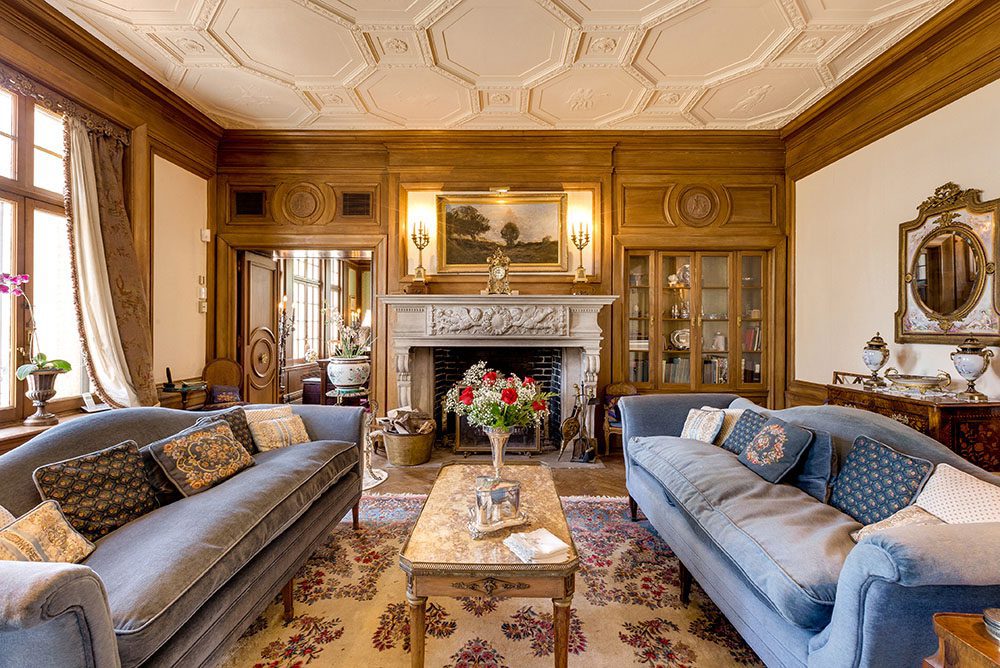New developments in Toronto and the GTA are filled with contemporary, cookie-cutter designs. While many Torontonians appreciate the aesthetics, and often the relatively lower costs of modern residences, others want a home with the physique of a different era.
Heritage homes are residential properties that the government, usually at the municipal level, designates as a “special heritage interest”, as part of the Ontario Heritage Act. Within the act, PART IV provides protection to individual properties and PART V provides protection for whole areas called Heritage Conservation Districts (HCD). The main purpose of the Ontario Heritage Act is to give the different levels of government the power to preserve Ontario’s and Canada’s heritage.
The Toronto Preservation Board in collaboration with the Heritage Preservation Services research which buildings to protect. After they suggest a building or area, a city council votes on whether to give it heritage status. And they follow a few criteria to decide whether or not a building qualifies. To qualify, a building must:
- be rare, unique, representative, or an early example of a style, type, expression, martial or construction method;
- display a high degree of craftsmanship or artistic merit;
- demonstrate a high degree of technical or scientific achievement;
- have a direct association with a theme, event, belief, person, activity, organization, or institution that is significant to a community;
- yield or have the potential to yield information that contributes to an understanding of a community or culture;
- demonstrates significant architectural value; or
- is important to supporting the character of an idea, physically or historically linked to surroundings, or is a landmark.
There are over 4,500 homes in Toronto and many more in the GTA that are properly designated as a heritage home. Designated homes or areas are legally protected and require an approval from city council for any demolition or alterations. Properties can also be “listed”. This means that, while they don’t have heritage status, they are being researched and assessed to see if they qualify for it. Owners of listed properties have to give the city a 60-day notice before any demolitions or alterations, in which time the city can grant the property heritage status.
While a designation may seem like a nice status for your house to have, there are a few things to note. Any home that has status or that is part of an HCD, again, must have city council evaluate and approve any plans for repair or alteration to the building(s). For an HCD, new developments in the area also have to blend in with existing historical buildings. Though these rules create barriers for property owners, Richard Silver, senior vice president of sales at Sotheby’s Canada, sees heritage designations as a positive:
I think that an HCD actually protects the atmosphere of a neighbourhood and is a bonus when buying.
The barriers on heritage homes and HCDs aren’t extensive, but you can expect to wait a few months for approvals on renovations and changes. When applying, it can help to provide what the site looks like now and what it can potentially look like after your repairs and alterations.
Know that the integrity of your plans may be challenged [by city council] if you are not in keeping with the [heritage] community.” said Silver, “But at the end of the day that is what has attracted you to the area. Why change it?
You should also expect higher renovation costs. Heritage homes require many architectural features to be kept the same. And to keep these features the same, the house may need highly custom and precise labour and pricier materials. This can include trimming details and stonework, special woods for doors and windows, and much more.

362 Wellesley St East | Cabbagetown
Due to these additional barriers and costs, some homeowners who live in potential-heritage-home properties choose not to apply for heritage home status. And if their property is selected without an application, they appeal to the city council.
If you’re looking to buy a heritage home, make sure to estimate how much renovations will cost. Ideally, tour the house with a contractor before purchase to understand the potential price tag of buying and renovating the property.
A heritage home can be a handful, but some of the benefits can be worth the costs. By owning a heritage property, you’ll have access to the Heritage Grant Program, which assists property owners with repairing and maintaining the defining features of a heritage building. To qualify for the grant, a property must be designated under PART lV or V of the Ontario Heritage Act and be a residential or property-tax-exempt property. This grant can provide up to $10,000 or 50% of the eligible heritage conservation costs. However, you can only receive this grant once every five years, and if you own multiple heritage properties, you can only apply for one property per year. If the program interests you, make sure to apply fast! Applications for 2019 are due October 21, 2018.
Another benefit of owning a heritage home is pride. The historical value of the home is important and a great talking point when speaking to associates and friends. Some see the heritage aspect as a con due to additional obstacles when altering the property, but when selling the home, it should definitely be listed as a pro. Many home buyers want a story and that’s exactly what you get from heritage homes—and something you won’t get from a newly developed property.
By market evaluations, the pros and cons even out. Silver says that heritage status has not affected most homes in Toronto:
These days a lot of the areas in Toronto are in HCD: Rosedale, Cabbagetown, the Annex etc. These areas have seen a huge price increase in value so the fact of being an HCD has not affected them. It just means that they are more difficult to tear down or to make changes to when the changes are not consistent with the neighbourhood.
AZ00KV






